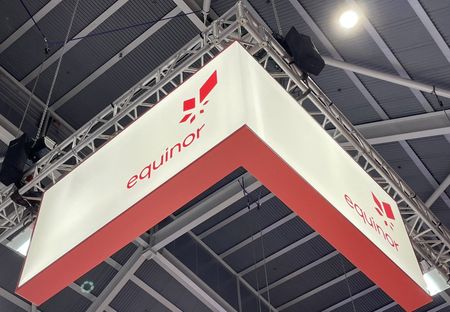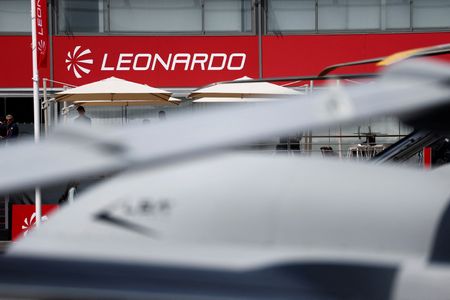By Nora Buli
LONDON (Reuters) – Norway’s Equinor is reducing its ambitions for developing renewable energy capacity by 2030, it said on Wednesday, the latest move by a European energy company to cut green targets as the market for renewables sours.
Equinor follows peers BP and Shell, which have trimmed plans to expand in renewable energy, especially offshore wind, where they previously hoped to benefit from their experience of operating oil and gas production at sea.
The offshore wind industry has struggled with interest rate rises, cost inflation, supply bottlenecks, changing regulatory regimes and unattractive margins, testing investors’ patience.
“For renewables, the ambition for installed capacity is reduced to 10-12 gigawatt by 2030,” Equinor said in a strategy update on Wednesday. This is down from a target of 12-16 gigawatts (GW) by 2030 Equinor set in 2021.
The company was doing it to adapt to market conditions and to further strengthen value creation for shareholders, it said.
The new target included Equinor’s 10% stake in Danish offshore developer Orsted, the world’s largest, as well as its 16.2% ownership in solar company Scatec, Equinor said.
In addition, Equinor is scrapping a previous 2030 target to allocate 50% of gross capital expenditures to renewables and low carbon solutions, it said.
Separately, Equinor on Wednesday posted slightly higher-than-expected profits for the final quarter of 2024, while raising its oil and gas output forecast.
(Reporting by Nora Buli in London, editing by Gwladys Fouche and Christian Schmollinger)











